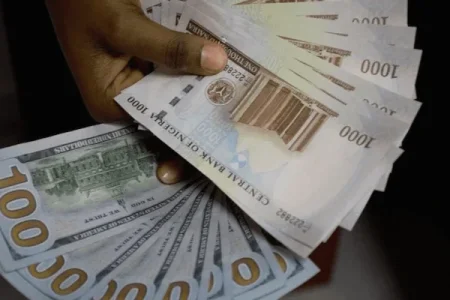
Nigeria's Naira hits a historic low, trading at N1,630/$1 on online platforms. The currency crisis, driven by high demand and limited supply, impacts businesses and everyday Nigerians. Experts call for robust economic policies to stabilize the currency and ensure sustainable growth.
The naira has fallen to an unprecedented low, with the parallel market exchange rate crossing N1,600/$1 and reaching N1,630/$1 on various online platforms. This alarming drop signals a deepening currency crisis, with significant implications for the Nigerian economy.
The Naira's steady decline has been evident in recent months. As of Thursday, July 18, 2024, platforms such as Trove, Remitly, Bamboo, and PiggyVest reported dollar exchange rates above N1,630. On ChipperCash, the rate soared to N1,803.04/$1. This downward trend parallels the official market, where the Naira traded at a high of N1,620 and closed at N1,581.26/$1 on Wednesday.
The disparity between the parallel market and official exchange rates continues to widen. While the official rate shows a more stable figure, the parallel market reflects the Naira's true market value, exacerbated by high demand for the dollar and limited supply. Economic experts argue that the parallel market provides a more accurate representation of the Naira's value, given the persistent pressures on the local currency.
The Naira's depreciation has far-reaching consequences for everyday Nigerians and businesses. Importers face rising costs, leading to increased prices for goods and services. Ordinary citizens struggle with inflation, which erodes their purchasing power. Foreign investors, wary of currency instability, are hesitant to invest, further hindering economic growth.
In response to the crisis, the Central Bank of Nigeria (CBN) has taken measures to stabilize the currency. CBN Governor Yemi Cardoso recently announced the approval of FX sales to eligible Bureau De Change (BDCs) at N1,450/$1. However, despite these efforts, FX turnover fell by 21.72% on Wednesday, highlighting the persistent challenges in managing the currency crisis.
Nigeria is not alone in facing currency devaluation. Other emerging markets, such as Turkey and Argentina, have experienced similar crises due to economic instability and external pressures. However, Nigeria's heavy reliance on oil exports and limited diversification makes it particularly vulnerable to currency fluctuations.
The Naira's historic low against the dollar highlights the severity of Nigeria's currency crisis. With significant impacts on the economy and everyday life, the government's and Central Bank's responses will be critical in determining the country's economic trajectory.




